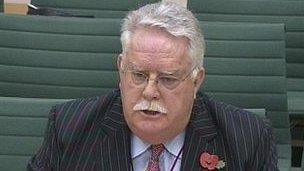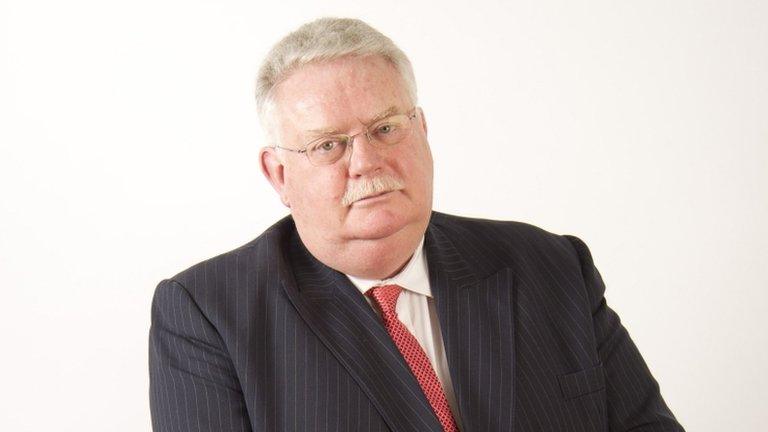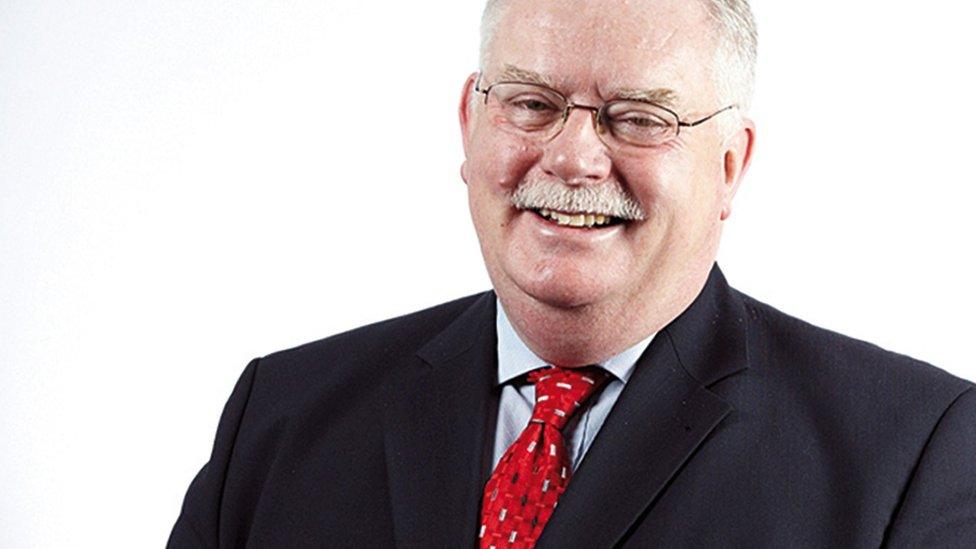Co-op Bank crisis: David Davis says ministers should have seen it coming
- Published

Ex-Co-op Bank chairman Paul Flowers had let the crisis happen but was not its cause, Mr Davis said
Senior backbench Conservative MP David Davis has described the problems at the Co-op Bank as a "spectacular failure" that "should have been seen coming".
In an interview with BBC Radio 4's World at One, he said the Financial Services Authority had warned about the bank's problems in April 2012.
The Treasury and the Bank of England should therefore have been aware them too, Mr Davis said.
Ministers have announced an independent inquiry into events at the bank.
But Mr Davis said problems were "visible as far back as 2011" and had been "plain for a very long time".
"Obviously we've had the near destruction of the foremost mutual bank in Britain, but in addition £1.6bn of Lloyds Bank money, much of which is taxpayers' money, was wasted on it," he added.
Earlier, Mr Davis had also told the Financial Times, external that the chancellor and the Treasury had "serious questions to answer" about their oversight of the Co-op Bank.
The Treasury has confirmed that Mr Osborne had used powers handed to him by the Financial Services Act 2012 to order an independent investigation into "events at the Co-op Bank and the circumstances surrounding them".
This will look back to 2008 and include the conduct and appointment of directors.
The bank's former boss, Paul Flowers, has been arrested in connection with a "drugs supply investigation".
Mr Flowers, 63, was filmed allegedly handing over £300 for cocaine and discussing buying other illegal drugs.
Following the revelations he was suspended from both the Methodist Church, where he was a minister in Bradford, and the Labour Party.
'Trojan horse'
Prime Minister David Cameron has suggested the Labour Party knew of concerns about Mr Flowers, a former Labour councillor and business adviser to Labour leader Ed Miliband, but did not act on them.
He has also highlighted the millions of pounds in "soft loans" and donations made by the Co-op to the Labour Party.
But Mr Miliband said he was confident Labour had acted with "complete integrity" and accused Mr Cameron of "unjustified smears".
In a letter to Cabinet Secretary Jeremy Heywood, Labour's shadow cabinet office minister Michael Dugher said "all in the Labour Party have been shocked at recent events".
"We fully back an independent inquiry to ensure such events cannot be repeated," he continued.
"We believe, however, that as cabinet secretary it is your responsibility to ensure that any such inquiry must be genuinely independent and robust.
"It must not become some sort of Trojan horse for a party political attack.
"We would therefore be grateful if you could provide a public and written assurance that this will be the case."
Asked to respond to Mr Davis's comments, the prime minister's official spokesman told a Westminster media briefing: "I think what Co-op bondholders and clients want to to know is why the Co-op got into the financial difficulties it is in, including the questions about its leadership."
Labour seized on the comments, praising Mr Davis's intervention and adding that the inquiry must "get to the bottom of" what went wrong at the bank on the government's watch.
- Published22 November 2013

- Published7 May 2014

- Published21 November 2013